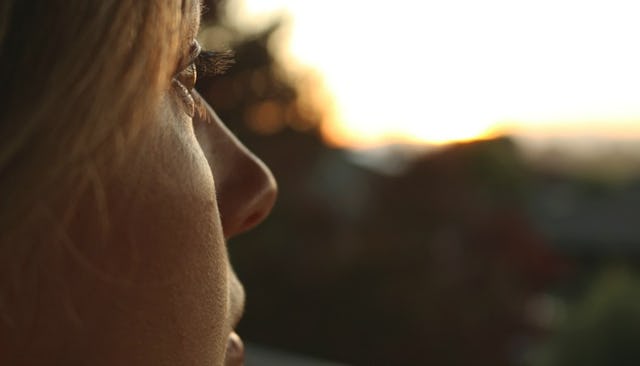White Privilege Taught Me That Black Lives Matter

Anger. Sadness. Outrage. Confusion. These are just some of the emotions I’m feeling about the latest black lives that were needlessly taken by police.
I’m a 30-something, non-Spanish-speaking Hispanic woman. As a child, drugs, alcohol, and domestic violence were not strangers to my home. I spent my formative years in a neighborhood that wasn’t anything like the projects by any means, but was the kind of community riddled with violence, gang activity, drugs, theft, and teen pregnancy.
I attended a D-rated high school where the overwhelming majority of students were black and Hispanic, most of whom came from low-income families and were eligible for free meals, like me. I know firsthand what life is like with food stamps, welfare, and Medicaid, and have had family members in and out of jail. Basically, I can relate to a lot of “disadvantaged” people.
I now have a master’s degree, am married to a white man, and have two white daughters. I own a home, have two family cars, and earn a generous salary. Basically, we live a happy, comfortable, suburban life.
Ten years ago, I was in Louis Vuitton at a local mall. The security officer was a nicely dressed black man who was watching me like a hawk. I don’t blame him; it was obvious I couldn’t afford to buy anything. But due to subconscious stereotypes and bias, I remember thinking how ironic it was that he, a black man, was watching me. I’m not a racist or a bigot by any stretch; I tell you this shameful story to illustrate that the things we hear and see everyday, whether we consciously believe them or not, impact our thoughts and actions in ways we don’t realize.
I remember the first time I heard the words “white privilege” and how off-putting they were. Nothing has ever been handed to me or my family, I thought. I beat the statistics and worked hard for everything I have. How foolish — I had no idea what white privilege actually meant. I thought it was an excuse used by disgruntled black people who felt “the man” was holding them down socioeconomically. Foolish.
About nine months ago. my perspective on white privilege changed. Why, you ask? I engaged a black friend whom I trust and respect, and then genuinely sought to understand the meaning of white privilege and the black experience in America. I didn’t challenge. I just asked questions listened.
Amazing things happen when we close our mouths and open our ears.
What I learned is that white privilege isn’t what I thought; white privilege is the peace of mind we have while living our everyday lives, not thinking about what harm could possibly happen to us because of our skin color. It’s not about my childhood, job, or neighborhood. In fact, it’s not about my family and me at all. It’s a systemic problem in our country that, until recently, we as a society didn’t admit existed.
There’s a scene in the movie Straight Outta Compton that made it click. In the scene, the N.W.A. members are taking a break from recording and are all standing outside the studio. Two white police officers approach them, and after a verbal exchange, force them to lie face-down on the ground. The white manager comes outside and the cops ask him why he is wasting his time on those “thugs” — all because of their race. I realized that I never have to worry about that happening to me; I don’t even think of it as a possibility. White privilege.
When I get pulled over for a traffic violation, I don’t worry about police brutality or being shot. White privilege.
When I go shopping, I don’t get followed around to make sure I don’t steal anything. White privilege.
People don’t lock their doors when they see me crossing the street in front of their cars. White privilege
These are just some of the things black people deal with every single day. I have read story after story about the fear that they live with all the time. While I realize the latest shootings haven’t yet been investigated, I firmly believe it’s safe to say that the two victims would still be alive if they were white.
White privilege taught me that black lives matter.
I used to be one of those people who said “all lives matter.” I’ve realized, though, that it’s “black lives matter” and not “all lives matter” because white people in America don’t need to fight for equality, fair treatment, and the right to live their lives without fear, discrimination, and senseless murder due to their race (nor have they ever). There has never been a question as to whether white lives matter or not (white privilege); we can’t say the same for black people. I’m not talking about an anti-police movement here; this issue is bigger than crooked cops and I’m a huge supporter of law enforcement officers as a whole. I’m talking about placing esteem and value on human life and specifically advocating for those whose lives have been devalued.
Black people in America are hurting and outraged. They should be; we should be too. They want to be understood and heard; we should ask questions and listen. We’ve got to stop speculating, stop justifying, and seek to understand instead.
We should feel the hurt, share the anger, and break the cycle.
#BlackLivesMatter
This article was originally published on